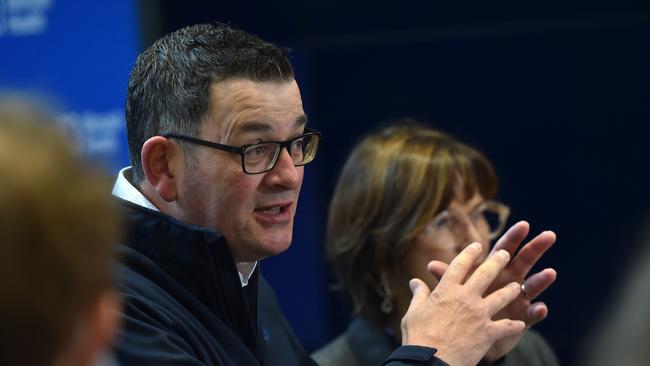$1300-a-year ‘Covid’ holiday home sting to last a decade
First Daniel Andrews banned Victorians from their holiday homes during lockdown. Now he’s coming after their getaway to pay for his pandemic mistakes.

A $1bn annual tax on investment properties and holiday homes will sting about 860,000 Victorians until at least 2033.
Treasurer Tim Pallas unveiled the Covid Deficit Levy on Tuesday and revealed that, on average, it would cost investors $13,000 for each additional property over the next decade.
The Covid Debt Levy will be slapped on secondary land holdings and is expected to raise $4.7bn over the next four years.
The levy, which won’t impact family homes, will generate revenue through changes to land tax rules and the imposition of an annual slug of $500-$975. On average, it will cost an annual $1300 per house every year over the next decade.
‘‘We think that it’s fair that Victorians who have multiple properties make a modest contribution to repaying Covid debt,’’ Mr Pallas said, claiming the average cost would be ‘‘around about $3 a day’’ on a property worth $1.3m.
The Covid Deficit Levy starts on January 1, 2024, and is expected to net the government $1.149bn in its first year, $1.173bn in 2024-25, $1.197bn in 2025-26 and $1.222bn in 2026-27. The decade-long tax whack has triggered warnings from the property industry that the measures could put upward pressure on already high rents.
Real Estate Institute of Victoria chief Quentin Kilian slammed the tax grab. “What we have seen is a horror move to increase land taxes yet again and to reduce the threshold, which means that a lot more people in Victoria are going to be captured by land tax,” he said.
“There’s nothing in this budget unfortunately to increase supply or to even address the investors coming back into the market to ease the supply in the rental market.
“If we don’t find ways to incentivise both residential investors and commercial investors, then other states will. The last thing we want to do is to try and win them back. We’d rather keep them here and help them prosper.”
Under the changes, land tax-free thresholds on secondary properties will be slashed from $300,000 to $50,000 and, in a second hit, investors face an annual lump-sum fee of between $500 and $975 until 2033.
Mr Pallas estimated more than 860,000 Victorian investors will be caught by the new tax net and must pay the lump sum ‘‘every year for 10 years’’.
Property Council of Australia Victorian executive director Cath Evans said the plan to slap billions of dollars in new taxes on property investors would put “significant” pressure on the local economy, and risked increasing rents, as landlords moved to recoup fees.
“There will be landholders who for the first time will be paying land tax, which of course (could mean) increased cost being passed on, potentially to renters,” she said.
Victorian Council of Social Service Emma King CEO said vulnerable Victorians could face rental hikes if property owners pass on tax increases.







To join the conversation, please log in. Don't have an account? Register
Join the conversation, you are commenting as Logout